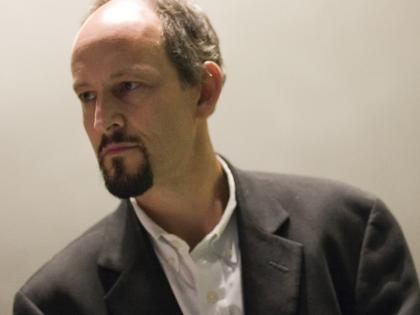At the end of a year that has seen various plans for the College (including the curricular review) mark time or unravel, matters are quietly speeding ahead with one project that has long been on the table: a women’s center. Plans for a renovated space in the basement of Canaday Hall have already been drawn up, and a director search committee, chaired by associate dean of the College Judith H. Kidd, expects to name its choice by the end of this semester. “We’re on a fast track now,” Kidd says. If all goes smoothly, the center should be operating this fall.
This represents a sudden departure from the College’s longstanding approach. Women’s groups have lobbied for a center since Harvard and Radcliffe began their “non-merger merger” process in the 1970s, but previous attempts often fizzled due to lack of funding and administrative support. Kidd says the College’s decision to get behind the center this time was provoked by shifting space, not shifting agendas. With Hilles Library slated for renovation to create offices for student groups, new possibilities became available in the Yard dormitory basements where the Undergraduate Council, the Independent, the Salient, Kuumba, CityStep, and six other groups headed to the Quad now operate. “There’s a ripple effect,” Kidd says. “We start to think about how the space can be used. There has been consistent consensus among women’s groups that a center is needed.”
That need crystallized in April 2004, when 13 groups submitted a proposal for a women’s center in the reconfigured Hilles that asserted, “[A] space dedicated to the support and betterment of women’s experiences at Harvard College is vitally necessary.” The proposal was convincing, Kidd says: the College decided to proceed with the project. Center proponents eventually called for a more central location, and in mid March, Kidd unveiled four plans for a redesigned space in Canaday Hall’s basement, created by Boston architects Kennedy and Violichthe same firm enlisted to redo Hilles.
Even as building plans and a director search proceed, however, not everyone agrees on exactly how a women’s center should function. Structurally, organizers say, it will resemble the Harvard Foundation for Intercultural and Race Relations, providing an umbrella space for the 26 Harvard organizations already devoted to women’s issuesfrom ECHO, an eating-concerns group, to cultural groups, Women in Business, and the Office of Sexual Assault Prevention and Response. Alka Tandon ’07, co-chair of the Women’s Leadership Project, says centralization will help these groups work more effectively: “A lot of us do the same things and target the same audience. The women’s center would provide a space to work together.”
Students have already weighed in with opinions on how the center should add to campus life. In a survey conducted by the Undergraduate Council in February, respondents said they envisioned the center as a resource hub offering one-stop-shopping for information on issues such as contraception, self-image, and relationships. The current plans also call for “drop-in” spacean open area suited to gatherings and informal meetings.
Some say the College should create a general student center to meet this need: in a February 16 editorial, Crimson staffers argued that “the considerable amount of resources being put towards the center would be better allocated addressing the social environment for all Harvard students....” Not everyone agrees: Lauren Epstein ’07, a council representative and a member of the director search committee, says the women’s center “has to be seen in the larger context of other things happening in the College, where there are major changes in availability of student space.” She cites three planned projectsa campus pub in Loker Commons, new social space for freshmen, and the new student activities offices in Hillesas evidence that the College is addressing longstanding undergraduate requests for additional social space separately.
Not all students are convinced that the women’s center will reach out to a wide audience. Some have suggested that the space will likely cater to members of those groups, such as the Radcliffe Union of Students, who pushed hardest for its creation. In a March 17 Crimson op-ed titled “Avoiding Bra-Burning Bonfires,” first-years Lucy Caldwell and Ramya Parthasarathy expressed concern that the center would reflect an “extreme” feminist point of view, alienating conservative or mainstream women, as well as men: “A major purpose of a women’s center must be to empower moderate women, not feminazis,” they wrote. Dara Goodman ’07, chair of RUS, says that she wants the same thing. “It’s important that the space is something that every woman feels comfortable entering, not just women already involved in women’s-specific interest groups,” she says, adding that it would be part of the job of the incoming director to make the space feel politically neutral.
Critics have cast the women’s center as a public-relations effortthe Crimson noted that it would make “an impressive stop on a campus tour”but in some ways, Goodman argues, that’s exactly the kind of effort that Harvard has yet to make. “The symbolic gesture is really important, because Harvard has never done that before,” she says. “There was a lot of space dedicated to women out at Radcliffe, and now that space is gone. That’s a powerful statement. Having a women’s center shows that Harvard cares about women and is willing to make changes institutionally to support them.”
~Elizabeth S. Widdicombe







